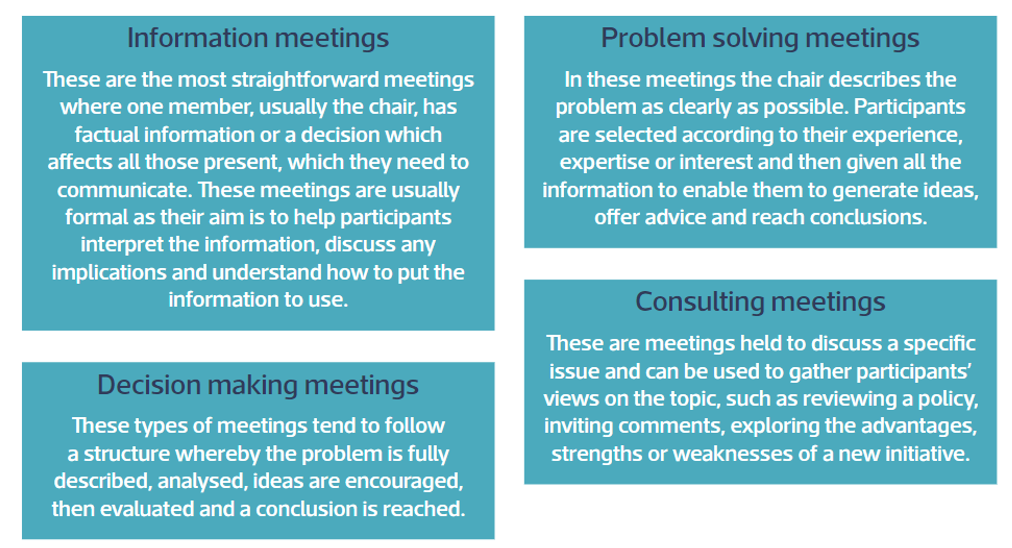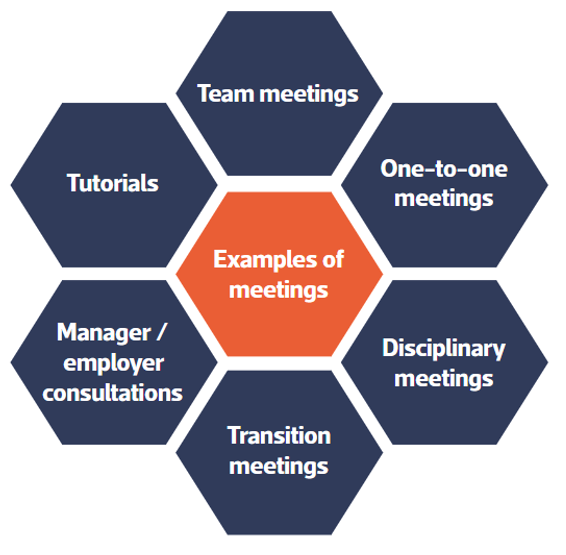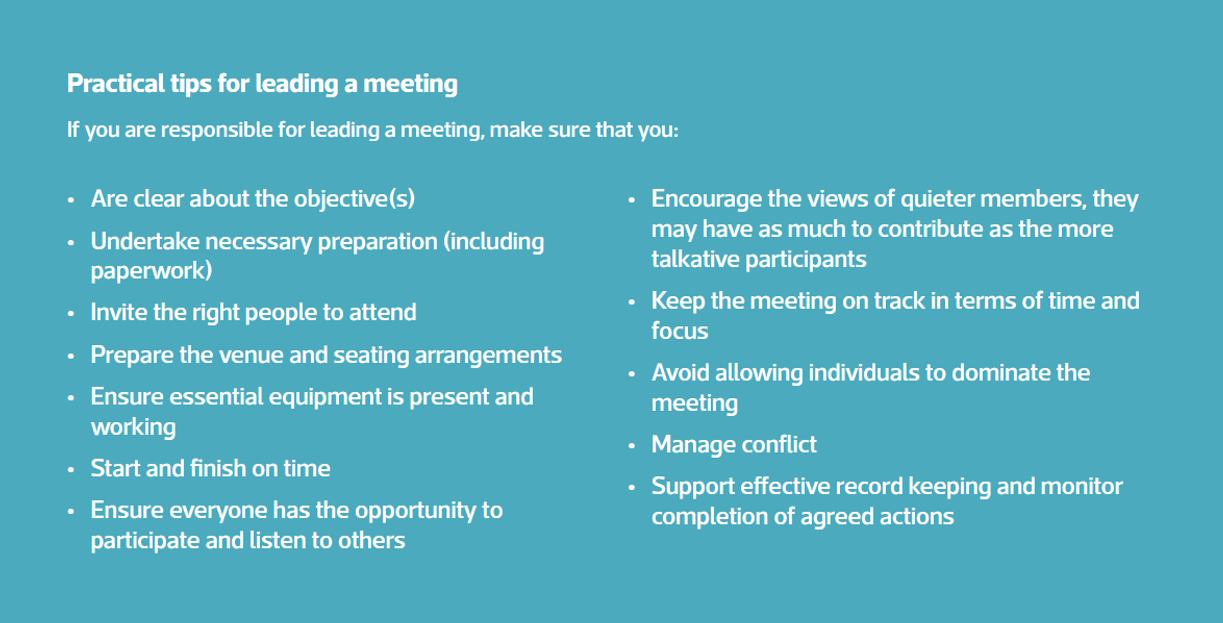Meetings can vary in their format, structure and tone, depending on the subject of the meeting and the general atmosphere of the organisation. Each type of meeting has a different goal, and the purpose and topic of the meeting will affect who speaks, how much they speak and the general tone of the meeting.
Formal meetings are pre-planned and follow a set agenda overseen by a chair person, with a record taken in the form of minutes of the meeting. An informal meeting generally does not have these characteristics, although there may be a chair and some informal notes may be taken. An example of such meetings might include a weekly team briefing.
Deciding whether a meeting is the appropriate option:
Your first considerations are the purpose, the participants and the desired outcome or the objective. Questions that can help you here are:
- Is a meeting necessary and what is to be achieved?
- Is there another more suitable alternative such as phone call, video conference, letter, memo or e-mail?
- What is the desired outcome from the meeting?Types of MeetingThere are four main types of meetings that are frequently used in organisations, to address important issues.

Planning for a Meeting
All meetings should have:
- a clear purpose to ensure everyone knows what is expected
- take up the minimum amount of people’s time
- ensure the most appropriate people are invited to attend and know why they are present
Participants need to prepare themselves to give the best possible contribution and read any supporting information. Ahead of formal meetings an agenda, with supporting documents, should be distributed to all those attending at least two days prior to the meeting to give everyone time to prepare. It also allows time for participants to consult with others who may be affected by the topics discussed.
The agenda should include the following information:
- date of the meeting, start and finish times with location
- the meeting objectives and topics to be discussed in a logical or priority order
The agenda normally begins with a review of expected actions decided at the last meeting and either at the start or end of the meeting there may be an item called ‘Any other business’ (AOB). This is an opportunity for important or urgent items that have arisen since the agenda was distributed to be included.
Attending a Meeting
If you are attending a meeting, you should have been invited for your interest in, or your relevant knowledge about, the subject of the meeting, and you will be expected to contribute to the meeting.
It is important that you prepare well, read any material provided with the agenda and check that you have the most up to date versions of any documents.
You may need to consult with your team members, who may be affected by the focus of the meeting, to gather their input and views that you will need to represent at the meeting. You may want to do your own research in preparation for the meeting if you have sources of information that are relevant to its objectives. Your aim should be to make relevant, constructive and helpful contributions so you get a reputation as someone who is good to invite to meetings.
Participants may well come from a variety of different areas, departments or outside organisations and may not normally work together, so you may find there is a lot of discussion, challenge or disagreement. There are likely to be a range of different personalities participating - some people are quiet, reserved, reflective and thoughtful. Others are more outgoing, talkative and seem to find it easy to make their contribution.
Sometimes it can feel quite challenging to make your points clearly so that everyone hears them. Remember, you need to make a contribution and present the views of your department or team, while listening to others’ viewpoints and asking them questions to clarify understanding. The best way to become an effective meeting participant is to get as much practice as you can and use every meeting as a learning opportunity.



References
Leigh, J & Seely, J One Step Ahead: Organising and Participating in Meetings Oxford University Press Peberdy, D & Hammersley, J (2009). Brilliant Meetings: What to Know, Say and Do to Have Fewer, Better Meetings Pearson Education Ltd
How would you rate yourself on Running Meetings? Test yourself with our Scorecard.
If you’re a member, you can test yourself on Running Meetings and see if you meet the standard.
Spotlights
Further Resources
From the Blog






